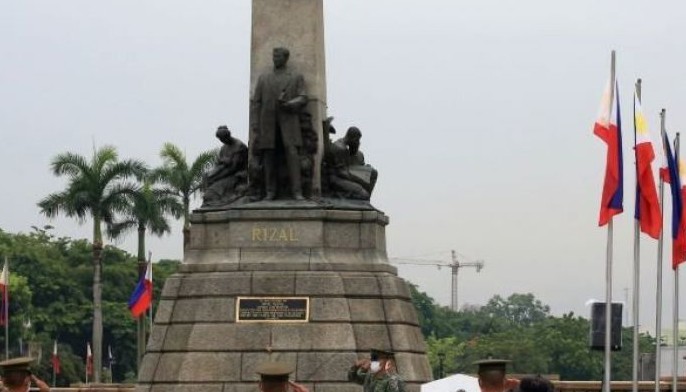MANILA, Philippines — Ahead of Independence Day, the Philippine National Police said it would strictly enforce the prohibition on any form of mass gathering during the celebration on June 12.
According to the Inter-Agency Task Force on Emerging Infectious Diseases' (IATF-EID) protocols under the general community quarantine, a total of only 10 people will be permitted to participate in the commemoration rites at Rizal Park.
Police Lt. Gen. Guillermo Eleazar, who heads the IATF-EID's quarantine enforcement arm, said in a statement: “As per instruction of our [Interior Secretary] Eduardo Año, protesters will be dispersed and advised to return home."
"The PNP will also exercise maximum tolerance and calibrated response," he added.
RELATED: UP Cebu protesters 'tried the tolerance of police, went too far' — PNP chief
"On the part of the PNP, we will strictly enforce the IATF protocols. We appeal to the public, especially to organized groups, to avoid mass gatherings as we celebrate this important day," Police Gen. Archie Gamboa, PNP chief, said in a separate statement for his part.
Eleazar in his statement also said that the PNP has always been fair and compassionate in the implementation of the quarantine rules, while the government has always respected the right of the people to assemble and air their grievances.
This follows a separate protest action held in the Cebu campus of the University of the Philippines that resulted in the arrests of seven activists and one bystander.
After the protest, Gamboa said that protesters tested the tolerance of police officers on the ground at the time.
Holding mass gatherings, like a birthday 'mañanita' for instance, is prohibited during the general community quarantine.
'We will exercise maximum tolerance'
Both Eleazar and Gamboa appealed for the public to consider other means of gathering, such as online protests.
Police have also arrested protesters who had aired their views outside of mass gatherings.
"They have been saying that the incident involving some police officers in Metro Manila was a mistake, if indeed it was, then why commit the same mistake?” said Eleazar, though it is not clear what incident he was referring to.
A number of incidents of aggressive law enforcement over the enhanced community quarantine cast doubt on whether or not law enforcement personnel were following their own rules.
RELATED: 'By the book': A look at quarantine incidents and police operational procedures
Asked whether or not the dispersal of protests would lead to the arrests of rallyists, Police Brig. Gen. Bernard Banac, PNP spokesperson, said in a text message: "Yes, we will exercise maximum tolerance and plead for them to disperse and go home so as not put themselves, their families and the public in great health risk."
"As responsible freedom-loving citizens, it is our duty to love each other and protect one another from COVID-19," he added.
Human rights lawyer Chel Diokno said earlier that conducting protests on the streets should be legal as long as participants will practice social distancing measures
WATCH: Diokno says protesters should not be arrested if social distancing is observed
Rule 25 of the Revised PNP Operational Procedures, a public document, touches on rallies and demonstrations and says that police are instructed to observe maximum tolerance in all dispersal operations as far as rallies and demonstrations are concerned.
Section 25.4(d) of the rule goes on to say: “No arrest of any leader, organizer, or participant shall be made unless he violates during the assembly a law, statute, or ordinance,” while 25.9 says: "Respect for human rights and equal treatment and protection for everybody shall be strictly observed; and PNP personnel shall observe maximum tolerance."



